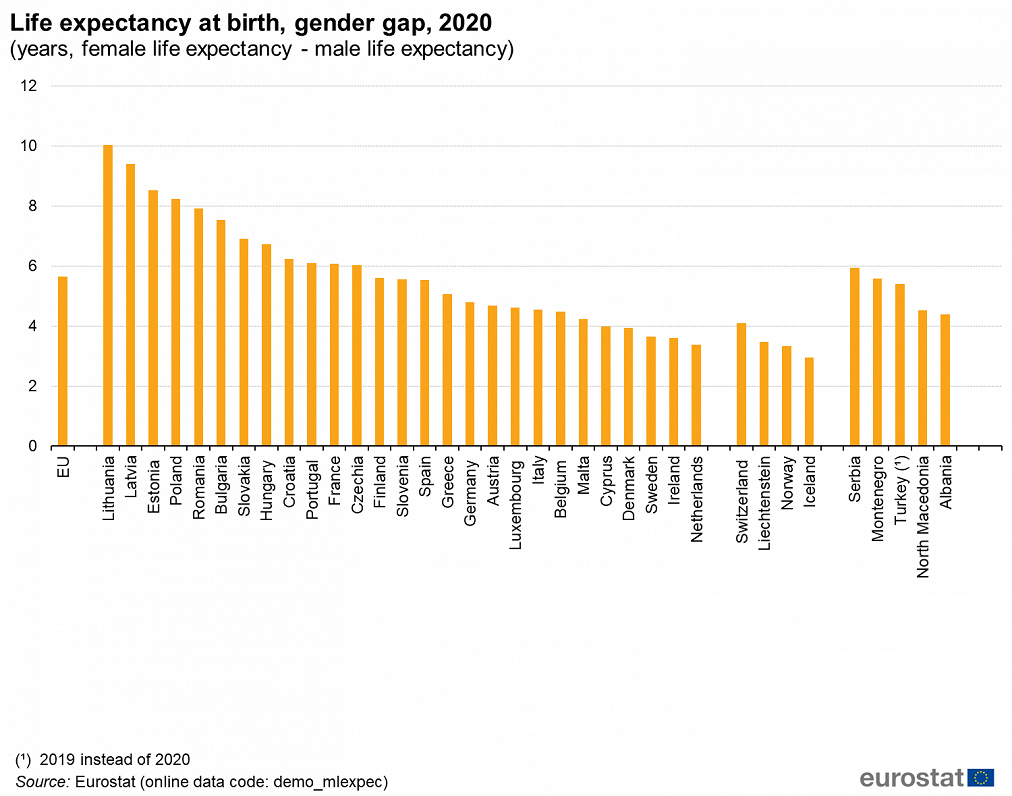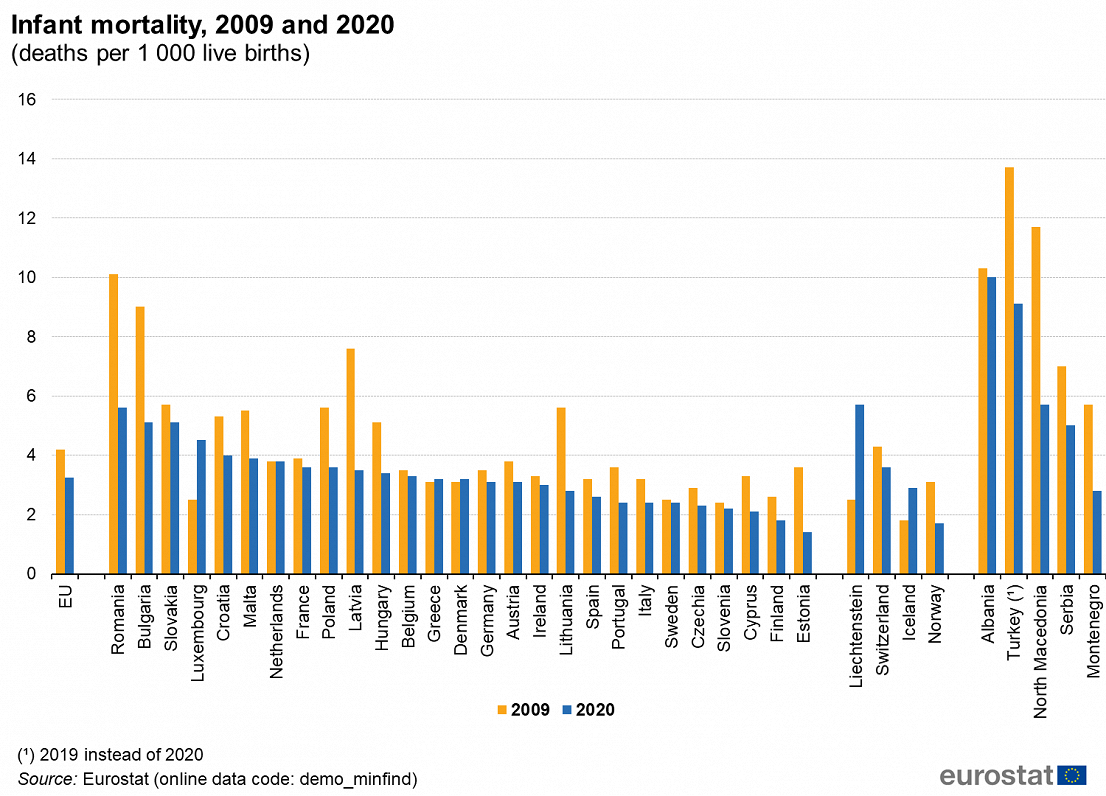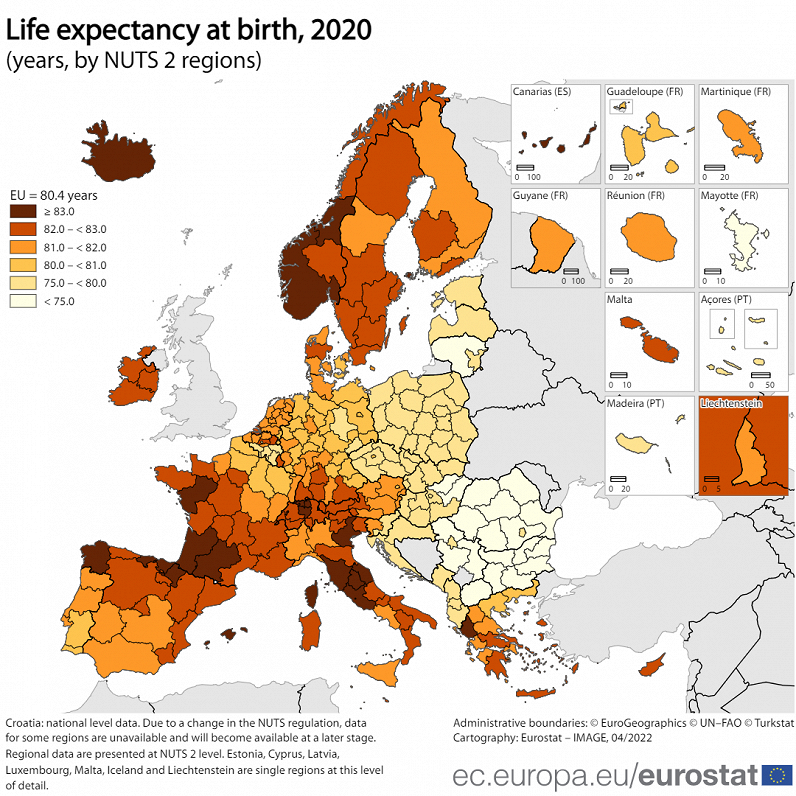In 2020, 5 184 077 persons died in the EU, compared with 4 653 033 in 2019: a sharp increase of more than 530 000 deaths in one year as the arrival of the coronavirus made an impact across the continent.
Average life expectancy across the EU was 80.4 years in 2020 (0.9 years lower than in 2019), reaching 83.2 years for women (0.8 lower than in 2019) and 77.5 years for men (1 year lower than in 2019).
For Latvia the figure was 75.5 years – down from 75.7 years in 2019. Only Bulgarians (73.6 years), Lithuanians (75.1 years) and Romanians (74.2 years) can expect to live shorter lives than Latvians.
Latvia is particularly notable for the nearly 10-year gap between life expectancy for women (80.0 years) and men (70.6 years). In this regard only Lithuania showed a wider gender gap in life expectancy.

Across the EU regions, in 2020, the highest life expectancy at birth was in the French island of Corsica (84.0), followed by the Balearic Islands in Spain (83.9), the Epirus region in Greece (83.8), Galicia in Spain and Umbria in Italy (both 83.7) and Midi-Pyrénées in France (83.6). The EU regions with the lowest life expectancy at birth were in Bulgaria: North-West (72.1), North-Central (72.8) and North and South-East Bulgaria (72.9).
One encouraging sign is a significant decline in infant mortality rates in Latvia over the last decade. In 2009 Latvia recorded an infant mortality rate of nearly 8 deaths per 1,000 live births. By 2020 this had reduced to fewer than 4 deaths per 1,000 births.
In 2020, the highest infant mortality rates in the EU were registered in Romania (5.6 deaths per 1 000 live births) and Bulgaria and Slovakia (both 5.1 deaths per 1 000 live births), and the lowest were recorded in Estonia (1.4 deaths per 1 000 live births) and Finland (1.8 deaths per 1 000 live births).





























